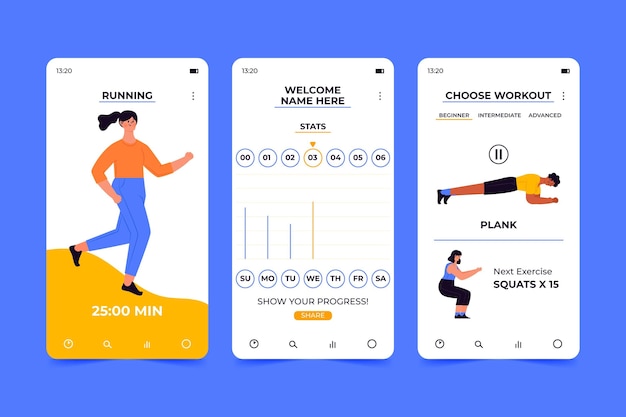You show up. You push hard. You log miles, lift weights, and squeeze in weekend workouts. But if progress feels stalled—or worse, you're constantly sore, tired, or injured—you might be training hard, but not training smart.
For weekend warriors juggling jobs, families, and fitness, recovery isn’t a luxury—it’s the foundation of real progress. The truth? Most training setbacks come not from what you do during workouts, but from what you overlook in between: sleep, form, and smart recovery habits.
Here are five common mistakes silently sabotaging your results—and coach-style fixes to help you train smarter, recover faster, and perform better—without needing more time.

You crush a Saturday long run, but stay up late scrolling and wake up Sunday groggy. Sound familiar? Poor sleep undermines every training adaptation—muscle repair, hormone balance, and mental focus all depend on quality rest.
When you skimp on sleep, your body stays in stress mode. Cortisol rises, growth hormone drops, and inflammation lingers—making recovery slower and injury risk higher.
Coach’s Fix: Prioritize sleep like a workout. Aim for 7–9 hours nightly. Create a wind-down routine: dim lights an hour before bed, avoid screens, and keep your bedroom cool and quiet. Even small improvements—like going to bed 30 minutes earlier—can boost recovery and performance.

It’s tempting to log miles or reps at any cost. But poor form—whether it’s hunching on the bike, rounding your back during squats, or overstriding while running—creates imbalances that lead to overuse injuries.
Weekend warriors often skip form drills, assuming they don’t have time. Yet, correcting technique prevents setbacks that cost far more time in the long run.
Coach’s Fix: Dedicate 5–10 minutes of every session to form checks. Record a short video of your movement (like a squat or running stride) and compare it to ideal form. Focus on posture, alignment, and smooth motion. If something feels off, scale back intensity and prioritize control over speed or load.
Jumping straight into sprints or heavy lifts shocks your system. Without a proper warm-up, your muscles, tendons, and nervous system aren’t ready—increasing injury risk and reducing performance.
Likewise, skipping the cool-down leaves your heart rate elevated and muscles tight, slowing recovery and increasing next-day soreness.
Coach’s Fix: Build in 5–10 minutes for both. Warm up with dynamic movements: leg swings, arm circles, light jogging. Cool down with static stretching or foam rolling—focus on major muscle groups like quads, hamstrings, and calves. This small investment pays off in mobility and recovery.

Rest doesn’t mean doing nothing. Complete inactivity can actually slow recovery by reducing blood flow. Weekend warriors often go from all-out effort to total stillness—missing the benefits of active recovery.
Light movement on off-days—like walking, swimming, or yoga—boosts circulation, clears metabolic waste, and reduces stiffness without adding strain.
Coach’s Fix: Schedule 20–30 minutes of low-intensity movement on recovery days. Think: a brisk walk, gentle cycling, or mobility drills. Keep intensity low—around 30–50% of max effort—so you feel refreshed, not drained.
After a tough session, grabbing a snack or drink within 30–60 minutes helps replenish glycogen and repair muscle. But many weekend warriors wait hours—or forget altogether—delaying recovery and increasing fatigue.
Dehydration also sneaks up. Even mild fluid loss impairs muscle function and cognitive performance, making your next workout harder.
Coach’s Fix: Refuel simply: combine protein and carbs (like yogurt with fruit, or a peanut butter sandwich). Drink water consistently throughout the day—don’t wait until you’re thirsty. Keep a water bottle handy and aim for pale yellow urine as a hydration guide.
As a weekend warrior, your time is limited—but your potential isn’t. Avoiding these five mistakes lets you get more from every workout. Focus on sleep, form, recovery rituals, and smart nutrition. These aren’t extra tasks—they’re force multipliers.
Progress isn’t just about effort. It’s about balance. Train with purpose, recover with intention, and watch your performance rise—without burning out.
Start small. Pick one fix this week. Master it. Then add another. Smart training isn’t complicated—it’s consistent.

Fitness

Fitness

Fitness

Fitness

Fitness

Fitness

Fitness

Fitness

Wellness

Fitness

Fitness

Fitness

Health

Fitness

Health

Health